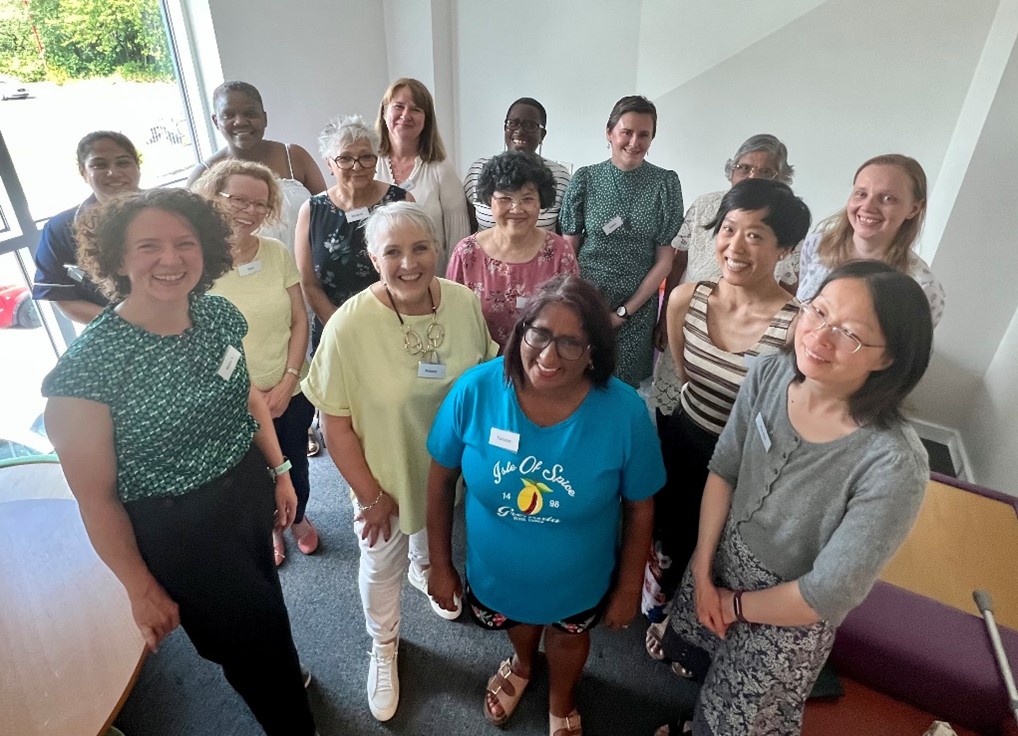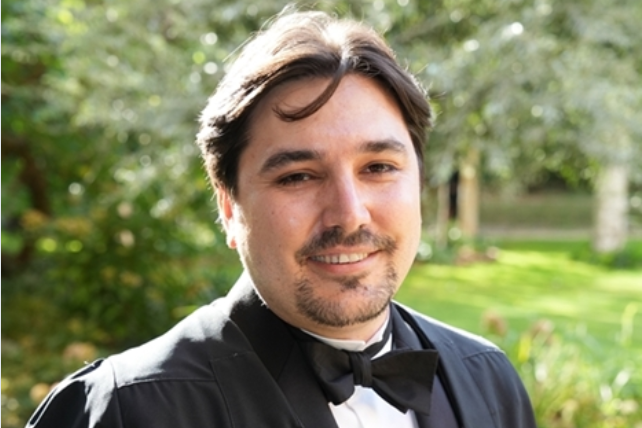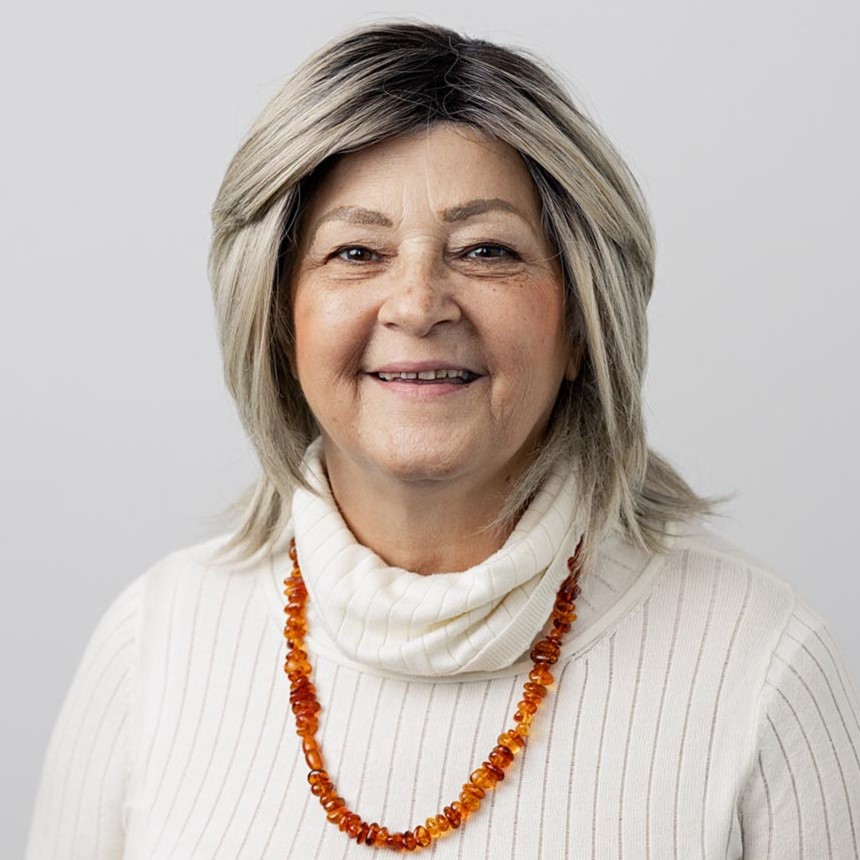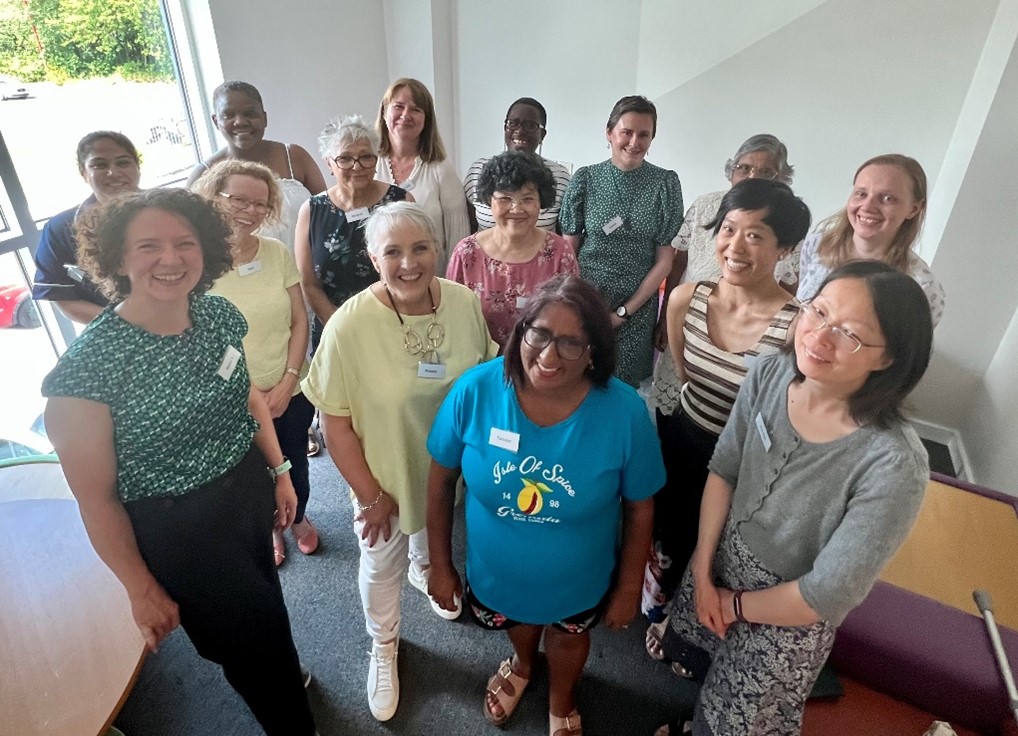
The additional molecular tests, which are offered to women who have recently been diagnosed with ovarian cancer, are a crucial tool to identify the best personalised treatment options, providing hope for more women to survive beyond 18 months.
The tests also identify whether or not the patient was born with a high chance of developing cancer, and if so, they can take steps to reduce their chance of getting cancer again and share the information with family members if they wish.
Current uptake of genetic testing is low in some groups of women, especially in Black, Asian and Minority Ethnic groups. This is mainly thought to be due to a lack of informed decision-making resources for women whose first language is not English.
With funding from Ovarian Cancer Action, the Demonstration of Improvement for Molecular Ovarian Cancer Testing (DEMO) project set out to explore why some groups of women decline genetic testing after being diagnosed with ovarian cancer, and to improve the uptake of genetic testing in these groups.
The DEMO team, which includes patients treated at Addenbrooke’s Hospital and hospitals in Birmingham, worked with patient groups representing people from ethnic minorities to identify any barriers and misconceptions around genetic testing.
The involvement of patients from different communities to help produce the information materials was critical from the outset of the project.
Jacqueline, who lives in Birmingham, was diagnosed with ovarian cancer in 2021 and agreed to take part in the DEMO project after her cancer nurse put her name forward.
She recalls the first project team meeting, saying: “I felt valued from the outset and listened to, which is key. It was a team effort alongside health professionals who were genuinely interested in communicating more effectively with their patients.”
Explaining why she wants to stay involved, “I believe that information on ovarian cancer and the benefits of genetic testing is important information that needs to be out there because of what I learned. I believe it’s key in saving lives.”
The team met several times both in-person and online, and together created a series of three animated videos explaining what genetic testing is, what the results mean and the next steps for patients recently diagnosed with ovarian cancer.
"Every woman diagnosed with ovarian cancer, no matter her background, should have access to cutting-edge genomic tests like whole-genome sequencing. It has the power to personalise treatment and drastically improve survival outcomes," said DEMO project co-lead Dr Gabriel Funingana, Clinical Research Fellow in Ovarian Cancer Genomics at Cancer Research UK Cambridge Institute, University of Cambridge.
"The DEMO project is a step toward a healthcare future where every woman with ovarian cancer benefits from the incredible advances in genomics. Together, we are making this future a reality."
Margaret is also part of the DEMO team. She joined the CRUK Cambridge Centre Ovarian Cancer Patient Group in early 2021 following her diagnosis of stage 3 ovarian cancer. She consented to full genome testing which highlighted that her cancer is likely be more difficult to treat and she is currently undergoing chemotherapy for recurrence.
Reflecting on her involvement in the project, she said: “I’m hoping the videos achieve better understanding and awareness for women of all nationalities especially as much as been learnt during the production of it. More importantly, I’m hoping it will result in a higher proportion of women, not only better understanding, but taking advantage of the benefits of understanding genetic testing.”
As well as producing accessible information about genetic testing for ovarian cancer patients, the team has launched GO Hildas, a new co-production group of volunteers keen to make an impact on women’s cancers in the West Midlands area.
The team has also been recognised for their co-production work with a Patient and Public Involvement and Impact Award from the University of Birmingham College of Medical and Dental Sciences.
Dr Elaine Leung, co-lead of the DEMO team and Academic Clinical Lecturer in Gynaecological Oncology at the University of Birmingham and Pan-Birmingham Gynaecological Cancer Centre, said: “On behalf of the DEMO team, I am delighted that our co-production work has been recognised by the College for this Patient and Public Involvement and Impact Award.
“We hope to use this opportunity to reach out to more patients from underserved groups via our developing new co-production group (GO Hildas) to promote the inclusiveness of research and quality improvement in the UK.”
The DEMO project will also produce national consensus guidelines on best practices for taking patient biopsies, to ensure genetic testing on tumours can be carried out and patients can benefit from personalised medicine.
Professor James Brenton, Professor of Ovarian Cancer Medicine and co-lead CRUK Cambridge Centre Ovarian Cancer Programme, said: “The DEMO project wants to ensure that any woman with advanced ovarian cancer can access the best way of having a biopsy test for molecular testing of her cancer as this is vital to identify the best possible choice for treatment.
“We must reduce health inequalities for women with ovarian cancer and DEMO is tackling this very difficult problem so that we can change the story of ovarian cancer.”
The DEMO project one of seven pilot projects funded by Ovarian Cancer Action’s IMPROVE UK initiative – an innovative nationwide scheme that aims to significantly reduce the unfairness women currently face in healthcare and the disproportionately low survival rates of women with ovarian cancer.
To find out more about the CRUK Cambridge Centre Ovarian Cancer Patient Group, please contact ovarian@cancer.cam.ac.uk.
Find out more about the GO Hildas group here.
It is with great sadness we announce that Margaret passed away on 27 March 2024.
Margaret was an active member of the Public and Patient Involvement Group for Ovarian Cancer for over three years, following her diagnosis of stage 3 ovarian cancer. Despite undergoing recurrence of her cancer and gruelling treatment, she generously shared her personal experience of ovarian cancer to support others and inform our research. In her role as a core member of the pioneering DEMO project, she was passionate about increasing the understanding and uptake of genetic testing in ovarian cancer patients, especially in Black, Asian and Minority Ethnic communities.
We are so grateful to Margaret for giving her time and energy selflessly to raise awareness of ovarian cancer research and the need to do more to help ovarian cancer patients in future.




















